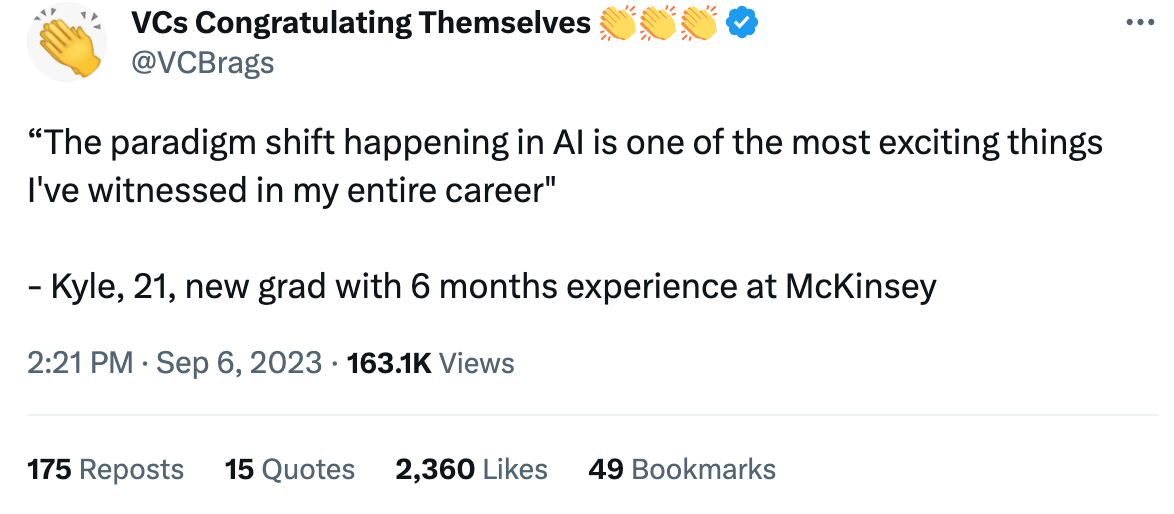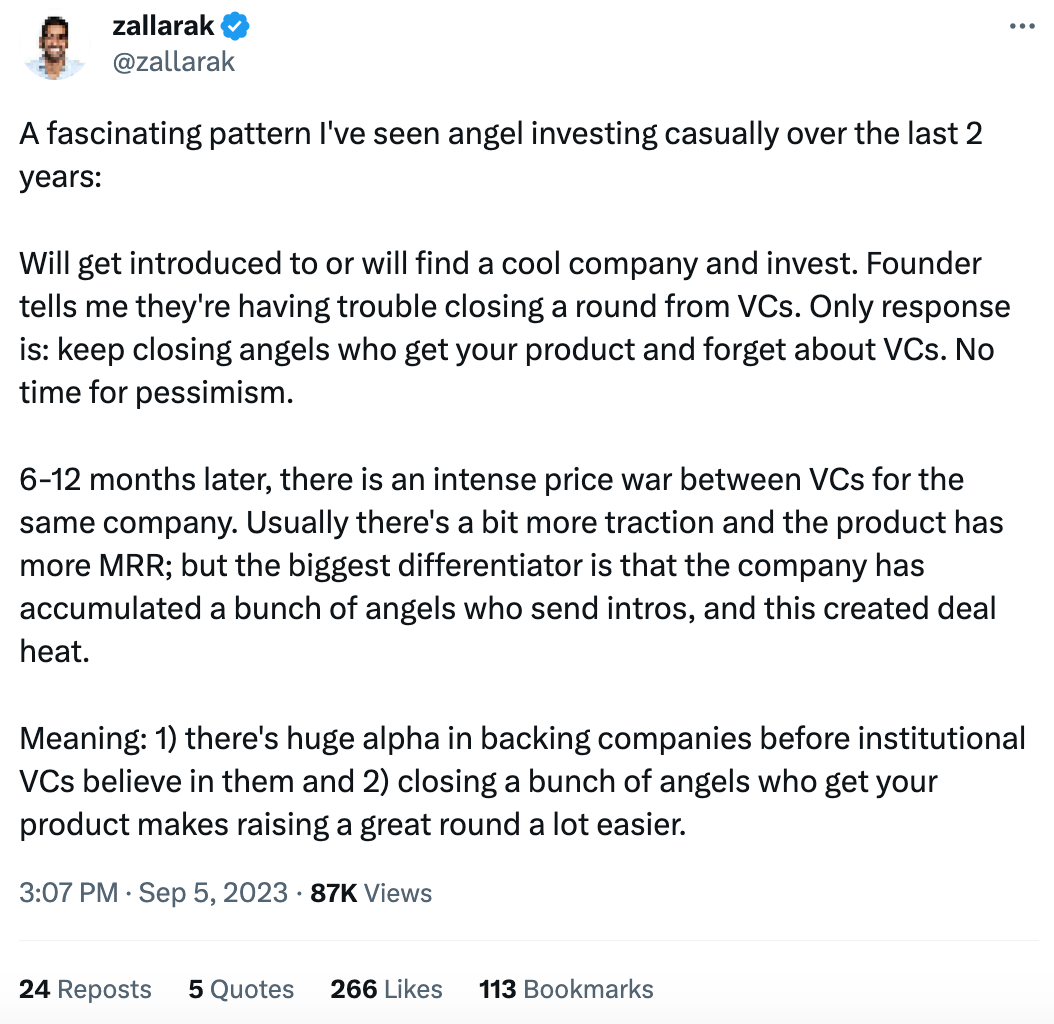Moneyball is a fortnightly newsletter from Koble exploring the limitations of human decision-making and their implications for startup investing.
We’ve spent two years developing our groundbreaking algorithms, which discover early-stage startups that outperform the market and predict their probability of success.
This week
🧠 Mental Model #23 – Dunbar’s Number – Why size matters in Venture Capital
📖 Investor reading – How the overcapitalization of VC changed the funding landscape – The costs of Europe’s GDPR regime – London VC Firm backed by Spotify CEO raises $121M to invest in AI startups
💬 Some tweets – The paradigm shift happening in AI – A fascinating pattern I’ve seen angel investing casually over the last 2 years – 2021 VC vintage returns
Why size matters in Venture Capital
Ever wondered if you have too many friends?
In the 1990s, anthropologist Robin Dunbar studied the correlation between primate brain size and average social group size. He found that it takes brainpower to interact, socialise, and bond with other animals, and to remember past interactions.
By measuring the human neocortex and extrapolating, Dunbar estimated humans’ ability to maintain social relationships. He concluded that the optimal social group size for humans is 148 (casually rounded to 150).
Dunbar’s anthropological surveys of village and tribe sizes also appeared to support this predicted value, including 150 as the estimated size of a Neolithic farming village; 150 as the splitting point of Hutterite settlements; 200 as the upper bound on the number of academics in a discipline’s sub-specialisation; and 150 as the basic unit size of professional armies in Roman antiquity.
But it seems Dunbar’s Number applies to business, too.
In his 2000 book “The Tipping Point”, every VC’s favourite author Malcolm Gladwell tells the story of W.L. Gore & Associates, known for the Gore-Tex brand.
By trial and error, the company’s leadership team discovered that if more than 150 employees were working together in one building, operational problems would occur. So they limited buildings to 150 employees and parking spaces, with multiple buildings placed only short distances apart. This improved performance. The late founder of the company Bill Gore, said:
“We found again and again that things get clumsy at a hundred and fifty.”
Dunbar himself viewed his now infamous number as exploratory, and we would do well to interpret it in that spirit. But as a mental model for investors it is useful, because it reminds us of our limitations when it comes to forming and maintaining meaningful business relationships. “Do things that don’t scale” rings true.
“The number” has penetrated anthropology, evolutionary psychology, statistics, and business management. Social network developers, military strategists, and operational psychologists use it to optimise unit cohesion and morale in organisations and networks.
It also has a dark side, with applications in distributed terrorist organisations, cyber-crime networks, or groups preaching criminal ideology…
If Dunbar’s Number applies to leadership gurus and criminal masterminds, why not Venture Capitalists?
In “The Square and the Tower”, historian Niall Ferguson argues for the power of networks, emphasising their importance over hierarchical structures.
“Often the biggest changes in history are the achievements of thinly documented informally organised groups of people.”
The venture industry is precisely this – an ecosystem of startups, investors, advisors, and journalists that seem to have an outsized impact on the course of technological progress and the march of civilisation.
Implications for investors
Above all else, VC is a network business. One that is effectively capped by the scalability of human relationships.
There is a cognitive gap in how many sectors and companies an individual investor can deeply understand without the help of data and technology. Technology offers a solution to this limitation, enabling investors to source and screen huge deal flow volumes.
Neolithic Man did not have access to massive computing power and AI. We do. Increasing the scale of venture analysis and investing can drive portfolio diversification and reduce volatility, generating risk-adjusted returns that significantly outperform industry averages.
And by smoothing the return profile of Venture Capital, we can grow the asset class and route capital more efficiently to startups that truly deserve it.
Work with Koble
At Koble, we’ve spent two years developing our groundbreaking algorithms, which discover early-stage startups that outperform the market and predict their probability of success.
We’re working with forward-thinking angels, VCs, family offices, and hedge funds to re-engineer startup investing with AI. If that resonates, get in touch.
Investor reading
🥶 How the overcapitalization of VC changed the funding landscape – Pitchbook’s demand-to-supply model has shown the VC late-stage at a deficit of nearly 3x, meaning companies need about three times more capital than is entering the market.
🇪🇺 The costs of Europe’s GDPR regime – The EU’s approach to regulating tech discourages both innovation and competition, and now Brussels has its targets set on AI.
🤖 London VC firm backed by Spotify CEO raises $121M to invest in AI startups – London’s Air Street Capital has seen early wins with startups focused on AI-powered drug discovery, not ChatGPT knockoffs.
Some tweets
Parting shot
“The mind that opens to a new idea never returns to its original size.”
– Albert Einstein
Regards from your [scalable] startup investing AI,
About Koble
Koble is re-engineering startup investing with AI, applying quantitative strategies that have disrupted public markets to early-stage startup investing.







